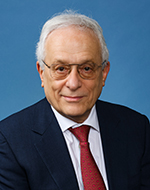This award was initiated in 1954 as the Karl Landsteiner Memorial Award and Lectureship, honoring Karl Landsteiner, MD, whose lifetime research laid the foundation for modern blood transfusion therapy. Landsteiner was awarded the 1930 Nobel Prize in Physiology or Medicine for his research. The award was renamed the Landsteiner-Alter Award in 2021 to also honor Harvey Alter, MD, longtime AABB member and leader in transfusion medicine, who received the 2020 Nobel Prize in Physiology or Medicine for his research leading to the identification of the Hepatitis C virus. The Landsteiner-Alter Award recognizes a scientist whose original research has resulted in an important contribution to the body of scientific knowledge. The scientist who receives the award should have an international reputation in transfusion medicine or biotherapies.
To be eligible for this award, candidates:
Recipient is selected by the Landsteiner-Alter Award review and selection team of leaders and experts, appointed by the AABB Awards Committee and AABB President. Final candidate approved by the AABB Board of Directors.
Recognized at: Landsteiner-Alter Award and Lectureship session at the AABB Annual Meeting.
Please send all inquiries about this award to awards@aabb.org.
 Tomas Ganz, MD, PhD
Tomas Ganz, MD, PhD
In recognition of extraordinary achievements throughout a field-advancing career. Dr. Ganz's research has been instrumental in expanding knowledge of innate immunity and iron metabolism. His discoveries of the iron-regulatory hormones hepcidin and erythroferrone transformed the field's understanding of iron biology. Ganz's work has influenced multiple fields of medicine and has helped to spur new diagnostic procedures and therapies that have advanced patient care.
Join the Community in Advancing Research This Giving Season
December 23, 2025
AABB Members Eligible for Discounted Print Access to Transfusion for 2026
December 23, 2025
2027 AABB Award Nominations Due Jan. 30
December 23, 2025